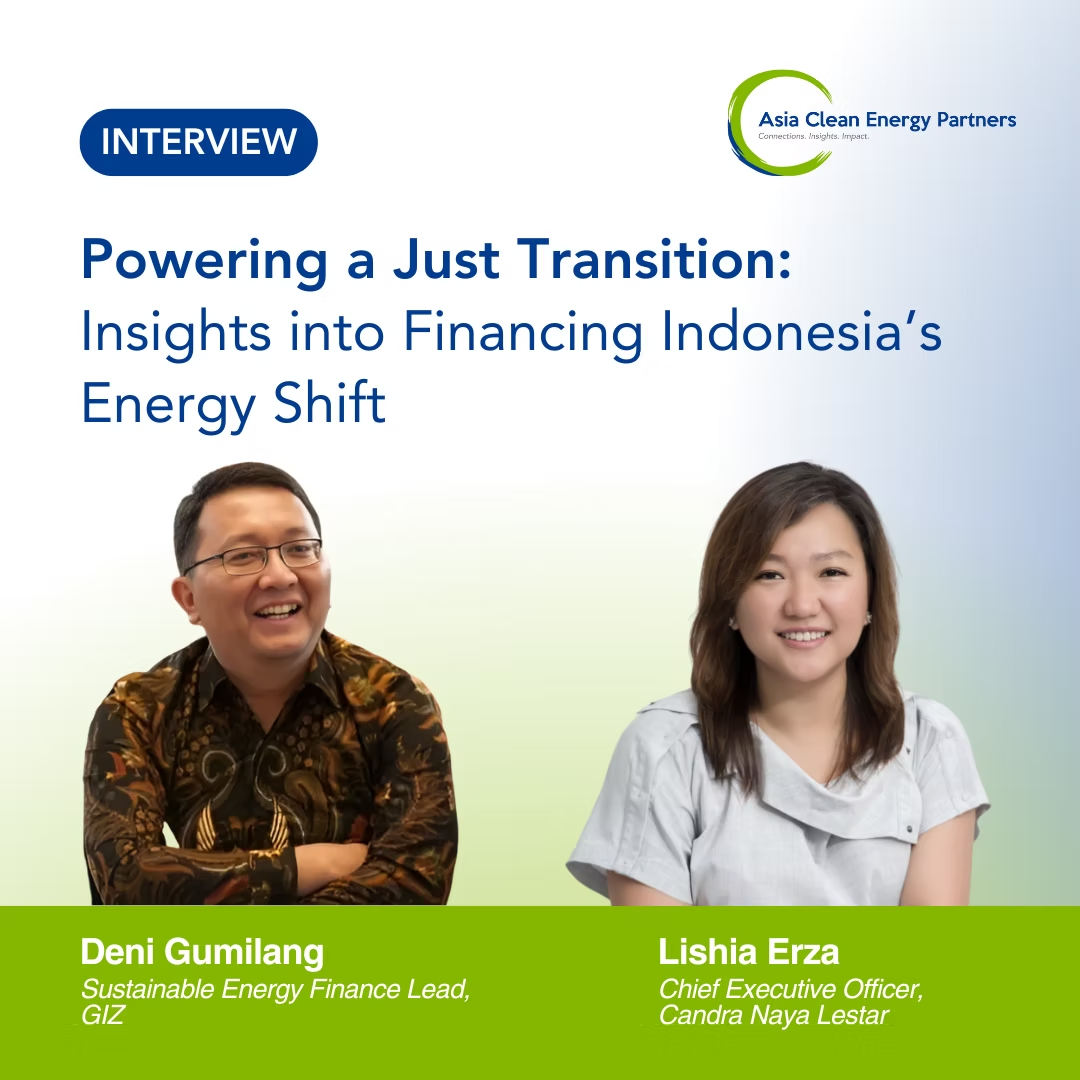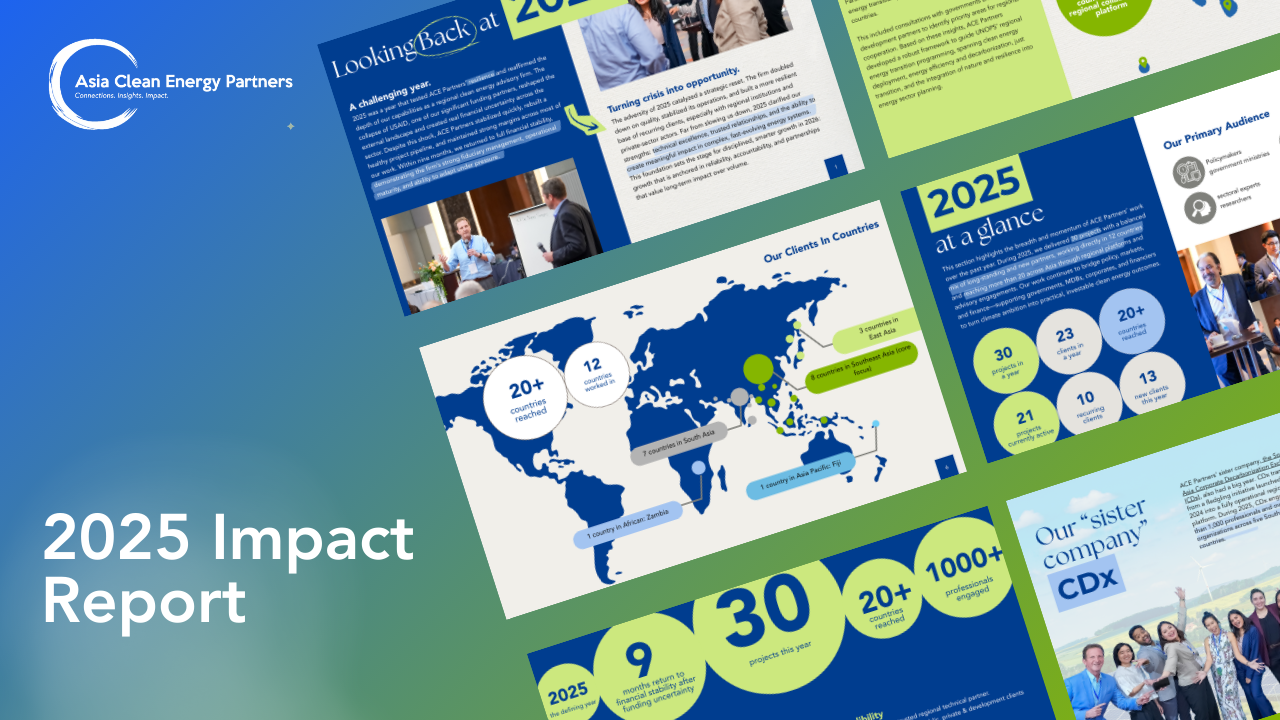Powering a Just Transition: Insights into Financing Indonesia’s Energy Shift
This interview was originally published on the Southeast Asia Information Platform for the Energy Transition (SIPET).
As Southeast Asian countries accelerate efforts to meet their corporate and national climate targets, Indonesia faces one of the region’s most complex challenges: how to finance its transition from fossil fuels—particularly coal—while creating a cleaner, more inclusive energy economy. Transition finance focuses on moving investment from brown (carbon-intensive) infrastructure into green infrastructure, but they should also aim to achieve a transition-phased, equitable shift of the energy sector that creates jobs and development benefits.
For this edition of SIPET Connect, Peter du Pont, Senior Advisor on the GIZ CASE project, speaks with a leader who is actively shaping the transition finance landscape in Indonesia. Lishia Erza, Chief Executive Officer of Candra Naya Lestari, brings a dual perspective as both a sustainable finance expert and an entrepreneur. She draws on her experience with impact investing, local incubation networks, and public-private platforms to empower communities and small businesses. Deni Gumilang, Sustainable Energy Finance Lead at GIZ, has spent more than a decade advancing climate and energy finance in Indonesia, advising ministries, co-developing policy tools, and supporting the design and development of relevant mechanisms like the derisking facilities for RE that align public and private finance.
Together, Lishia and Deni offer grounded insights into what transition finance looks like in the Indonesian context—how it’s being applied, what gaps remain, and what it will take to ensure that the country’s energy shift is both just and achievable.
SIPET Connect: How do you define transition finance in the Southeast Asian and Indonesian context?


